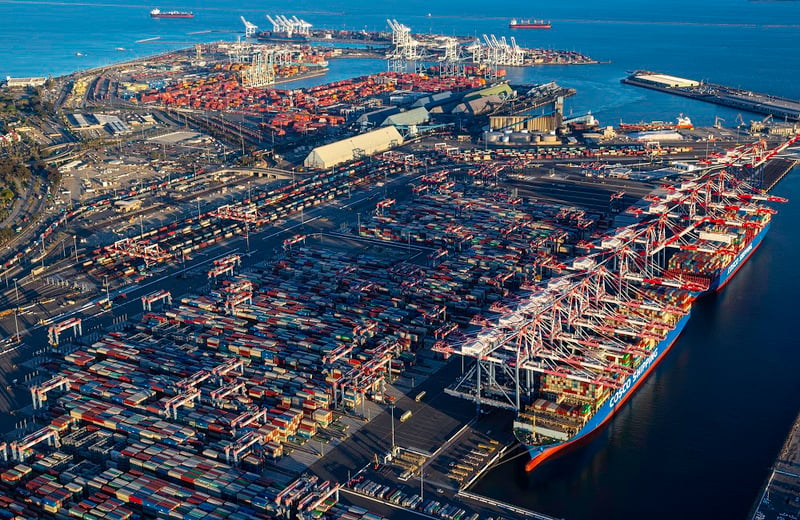
Port of Long Beach Clean Air Project receives $30.1 Million
Federal grant funds the nation’s largest fleet of zero-emissions cargo handling equipment
The Port of Long Beach announced Friday it will receive a $30.1 million grant from the U.S. Department of Transportation to deploy the nation’s largest fleet of manually operated, zero-emissions cargo handling equipment at a single marine terminal.
Funding for the new clean air project comes from the 2022 Port Infrastructure Development Program, administered by the U.S. Maritime Administration. The project will replace diesel yard tractors at Long Beach Container Terminal with approximately 60 electric, human-operated yard tractors. The project at LBCT – which can move 3.3 million cargo container units annually, more than most U.S. ports – also includes the construction of electric equipment charging stations with energy efficiency-enhancing software, training for operators and maintenance personnel, and installation of software equipment to streamline cargo-handling operations within the terminal.
“I want to thank our partners at the Department of Transportation for continuing to invest in the Port of Long Beach,” said Mayor Robert Garcia. “We’ve made incredible progress through the Clean Air Action Plan, and this funding to expand the use of zero-emission equipment will continue to improve community health as we strengthen our supply chain.”
“We thank the federal government and in particular the Biden-Harris Administration, Senators Dianne Feinstein and Alex Padilla, and Congressman Alan Lowenthal for this important funding to make operations even more sustainable and further eliminate Port-related emissions,” said Long Beach Harbor Commission President Sharon L. Weissman.
“This project is a critical step along our path toward zero emissions, will support good-paying jobs, and reduce climate and air-quality impacts on nearby communities,” said Port of Long Beach Executive Director Mario Cordero. “It is everything we strive for as the nation’s most sustainable seaport – moving cargo in a way that protects the health of our residents while ensuring our operations can continue to grow and support the economy.”
“LBCT is committed to the health and welfare of the region and this grant is a vital step to advancing a more sustainable future,” said LBCT President Anthony Otto.
The Port of Long Beach is known internationally as an industry leader in advancing cleaner cargo movement. In order to tackle greenhouse gases and criteria pollutants, the Port of Long Beach has set a goal of all zero-emissions cargo-handling equipment by 2030 and a zero-emissions drayage truck fleet by 2035. About 17% of the cargo-handling equipment at the Port is electric-powered, the largest such fleet in the United States. As a signal of that progress, in September, the Port announced that a trucking company partner will convert to fully zero emissions by 2025 – 10 years before the 2035 goal. Read more about the project here.
Compared to 2005, the year before the Clean Air Action Plan was adopted, the Port of Long Beach has reduced emissions of diesel particulate matter by 88%, nitrogen oxides by 49%, and sulfur oxides by 96%.
Since 2021, the Port has put in place a number of initiatives to further reduce air pollution and build a technological and operational bridge to a zero-emissions future. These include:
- Launching the Clean Truck Fund Rate, which is generating funding for zero emissions trucks.
- Managing $150 million in zero- and near-zero-emissions demonstration projects inside the Port and on Southern California roads. To date, $70 million in grant funding has been secured for these projects. To learn more about the Port’s quest to reach zero emissions, visit www.polb.com/zeroemissions.
- Adopting an updated Green Ship Incentive Program that provides the largest incentive for Tier III vessels, which are the cleanest vessels available today. Last August, the Port of Long Beach became the first seaport on the West Coast to refuel an LNG-powered ship, the cleanest commercially available cargo ship.
- Funding demonstrations of vessel technologies capable of reducing ship-related emissions through the Port’s Technology Advancement Program.









